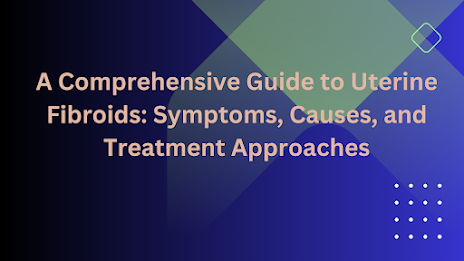Uterine fibroids, also known as leiomyomas, are common benign growths that develop within the muscular wall of the uterus. These non-cancerous growths vary in size and can range from being as small as a seed to as large as a grapefruit. While the exact cause of uterine fibroids is unknown, certain factors such as genetics, hormones, and estrogen levels have been suggested to play a role in their development. In this article, we will delve deeper into the topic of uterine fibroids and provide valuable insights to help women make informed decisions about their health and well-being.
What are Uterine Fibroids?
Uterine fibroid are abnormal growths that originate from the smooth muscle tissue of the uterus. They are typically round or semi-round in shape, and their size can vary greatly. While some fibroids may go unnoticed due to their small size, others can cause significant discomfort and interfere with a woman's quality of life.
Types of Uterine Fibroids
There are several types of uterine fibroids, classified based on their location within the uterus. The most common types include intramural fibroids, which develop within the muscular wall of the uterus, subserosal fibroids, which grow on the outer surface of the uterus, and submucosal fibroids, which develop just beneath the lining of the uterus.
Causes and Risk Factors of Uterine Fibroids
The exact cause of uterine fibroids is not yet fully understood. However, certain factors have been identified as potential contributors to their development. Hormonal imbalances, particularly elevated levels of estrogen and progesterone, are believed to play a role in the growth of fibroids. Additionally, genetics, family history, and race have been associated with an increased risk of developing these benign tumors.
Symptoms of Uterine Fibroids
The symptoms of uterine fibroids can vary from woman to woman, depending on the size, number, and location of the fibroids. Some women may experience no symptoms at all, while others may face significant discomfort. Common symptoms of uterine fibroids include heavy or prolonged menstrual periods, pelvic pain or pressure, frequent urination, constipation, and even fertility problems.
Diagnosis of Uterine Fibroids
If you suspect you have uterine fibroids, it is important to seek a proper diagnosis from a healthcare professional. We will likely perform a physical examination and may recommend additional tests, such as an ultrasound or MRI, to confirm the presence of fibroids and assess their size and location. Proper diagnosis is crucial for determining the most appropriate treatment plan for your specific case.
Treatment Options for Uterine Fibroids
The treatment options for uterine fibroids depend on various factors, including the severity of symptoms, the size and location of the fibroids, and the desire for future fertility. In cases where symptoms are mild or non-existent, a "watchful waiting" approach may be recommended, with regular monitoring of the fibroids. For those experiencing significant discomfort, treatment options may include medication to manage symptoms, surgical removal of the fibroids, or minimally invasive procedures such as uterine artery embolization or focused ultrasound surgery.
Natural Remedies for Managing Uterine Fibroids
In addition to conventional medical treatments, some women may seek natural remedies to manage their uterine fibroids. While there is limited scientific evidence to support the effectiveness of these remedies, some women report finding relief through practices such as acupuncture, herbal supplements, and dietary changes. It is important to consult with us before trying any natural remedies to ensure they are safe and appropriate for your individual situation.
Lifestyle Changes to Reduce the Risk of Uterine Fibroids
While there is no guaranteed way to prevent the development of uterine fibroids, certain lifestyle changes may help reduce the risk or minimize symptoms. Maintaining a healthy weight, exercising regularly, eating a balanced diet rich in fruits, vegetables, and whole grains, and managing stress levels can all contribute to overall reproductive health and potentially lower the risk of fibroid growth.
Complications and Potential Effects of Uterine Fibroids
In most cases, uterine fibroids are benign and do not pose a serious health risk. However, in some instances, complications may arise. Large fibroids or those located in certain areas of the uterus can lead to significant pain, discomfort, and complications during pregnancy and childbirth. Additionally, fibroids can sometimes affect fertility and increase the risk of certain pregnancy complications. It is important to discuss any concerns or potential risks with us to ensure appropriate monitoring and management.
In conclusion, uterine fibroids are common non-cancerous growths that can cause a range of symptoms and discomfort for women. Understanding the symptoms, causes, and available treatment options is crucial for making informed decisions about your reproductive health. If you suspect you have uterine fibroids, seek medical advice from us to receive an accurate diagnosis and discuss the most suitable treatment plan for your individual needs.


